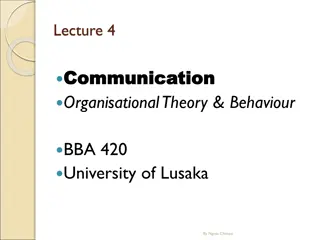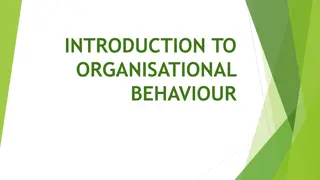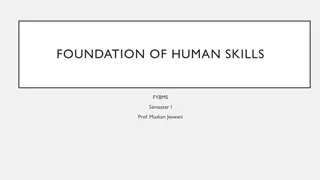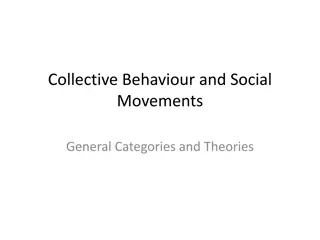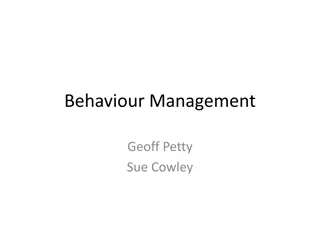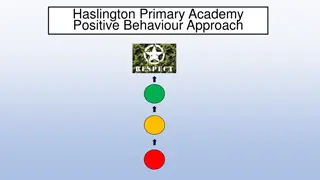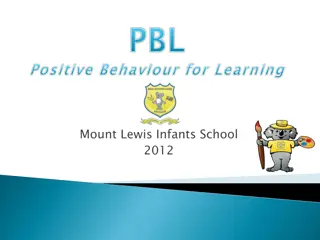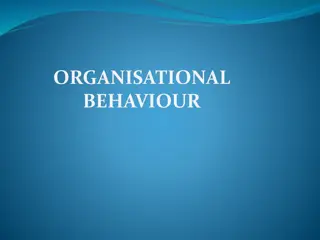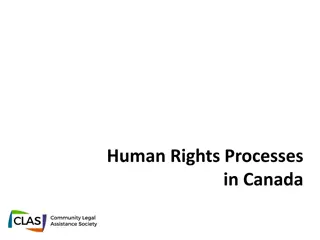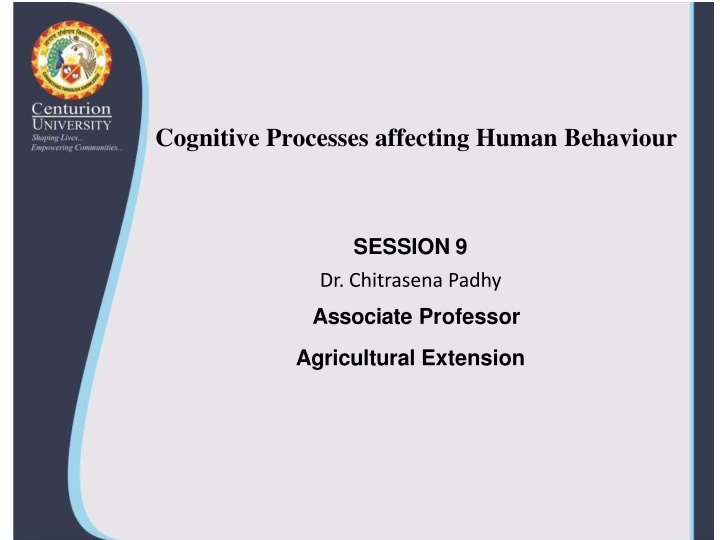
Cognitive Processes and Human Behavior
Explore the intricate workings of cognitive processes and their impact on human behavior. From neurological signals to emotional influences, delve into how cognition shapes our perceptions, memories, and actions. Discover the cognitive approach to behavior, research methods employed, and the evolving study of emotions' role in cognition.
Uploaded on | 0 Views
Download Presentation

Please find below an Image/Link to download the presentation.
The content on the website is provided AS IS for your information and personal use only. It may not be sold, licensed, or shared on other websites without obtaining consent from the author. If you encounter any issues during the download, it is possible that the publisher has removed the file from their server.
You are allowed to download the files provided on this website for personal or commercial use, subject to the condition that they are used lawfully. All files are the property of their respective owners.
The content on the website is provided AS IS for your information and personal use only. It may not be sold, licensed, or shared on other websites without obtaining consent from the author.
E N D
Presentation Transcript
Cognitive Processes affecting Human Behaviour SESSION 9 Dr. Chitrasena Padhy Associate Professor Agricultural Extension
Thinking, feeling and imagining are all processes that some people may take for granted, as we can only see the world through our own eyes. In reality, cognitive processes allow us to create cultures, societies, friends and occupations, many important aspects of human life. Learning about cognitive processes can help expose their ever-present nature throughout every moment of our lives.
Cognitive processes are a series of chemical and electrical signals that occur in the brain that allow you to comprehend your environment and gain knowledge. Neurons release chemicals that create electrical signals in nearby neurons, building a mass of signals that are then translated into conscious and unconscious thoughts. Conscious interpretation of your five senses, procedural knowledge and emotional reactions are all examples of cognition.
The cognitive approach to behaviour views human beings as processors of information much in the same way as a computer processes information. The cognitive approach to behaviour focuses on areas of research such as schema processing, memory processing, and thinking, and how cognition may influence behaviour. Researchers are also interested in the extent to which cognitive processes are reliable, for example, in relation to thinking and memory.
Cognitive processes are often influenced in complex ways by emotions. The influence of emotions on cognitive processes is studied not only by cognitive psychologists, but is developing as an area of interest for cognitive neuroscientists as well as social psychologists.
Research methods in the cognitive approach to understanding of behaviour rely on experiments and brain imaging technologies as well as qualitative approaches to understanding everyday memory and thinking, making the cognitive approach an example of the holistic approach to understanding human behaviour.



